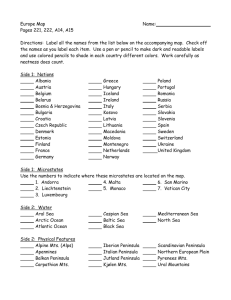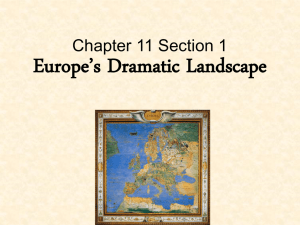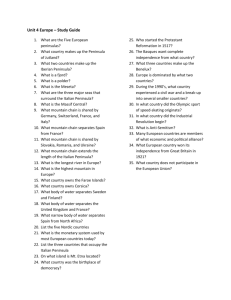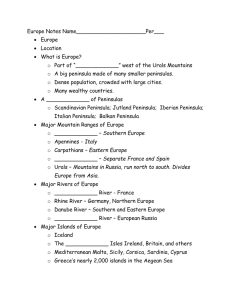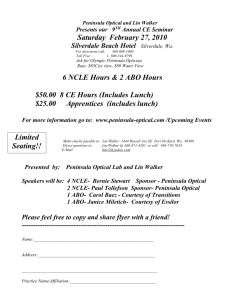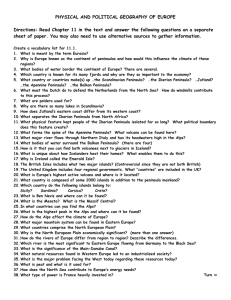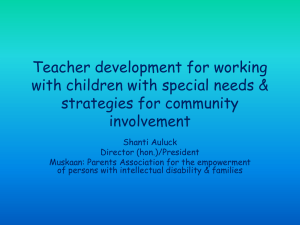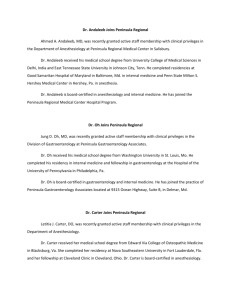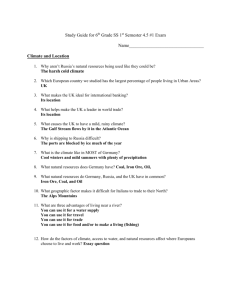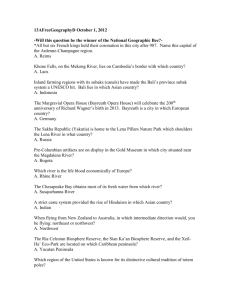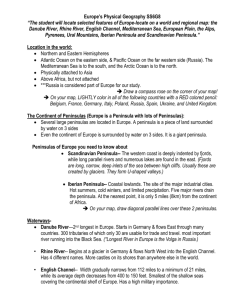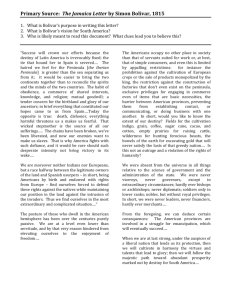RMSA DEGSN Social Science
advertisement
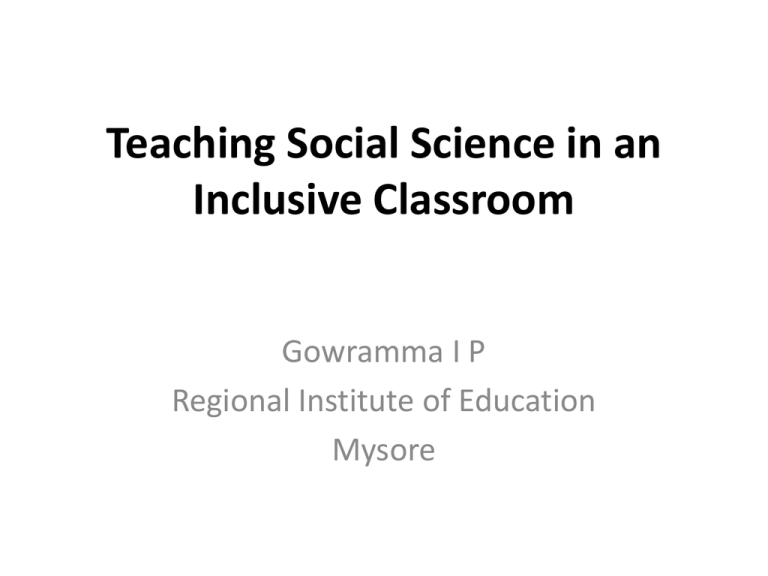
Teaching Social Science in an Inclusive Classroom Gowramma I P Regional Institute of Education Mysore “There is only one corner of the universe you can be certain of improving……………………… and that is your own self” --Aldous Huxley Introduction • Social Science - status of core subject in the curriculum. • Awakens social consciousness, develops democratic values and national integration. • The NCF 2005 emphasises - content should be transacted through activities drawing on local resources. - methods that promote creativity, aesthetics and critical perspectives. - strategies like problem solving, dramatisation, role play along with utilisation of resources like audio visual materials, photographs, charts, maps and models. Introduction Continued……. • In an inclusive classroom children with various types and degrees of disabilities whose needs are diverse are present along with other children • With the implementation of Right to Free and Compulsory Education Act, every child has a right to quality education • Hence a teacher has to plan activities to take care of the diverse learning needs of children in the classroom. Tell me and I will forget…… Show me, and I will remember…… Involve me, and I will understand…….. Challenges in teaching social sciences • Social studies is the study of people and their interactions with one another and the environment. • Hence learning social studies requires much more than book knowledge. • Teachers face many problems while teaching this subject. Challenges in teaching social sciences • Challenges due to the nature of the disability • Challenges due to the nature of the subject matter (content) • Challenges due to the individual factors • Challenges due to administrative reasons Challenges due to the nature of the disability • Lack of authentic experience that will help them relate • • • • to the content taught in the class Limitation in vocabulary that will fail to give them access to reading, writing and understanding Opportunities to discuss or talk about topics they are learning is negligible Knowledge and exposure to people and events we learn in social studies Poor reading ability Challenges due to the nature of the subject matter (content) • History • Civics • Geography Challenges due to the individual factors • Low self concept, low self esteem and low expectation • Negative attitude towards the subject acts adversely in concept attainment • Level of expectation “Everyone is genius. But if you judge a fish on its ability to climb the tree, it will live its whole life believing that it is stupid” --------Albert Einstein Challenges due to administrative reasons • Huge class size • Insufficient time • Too much of portion • Use of inappropriate method Methods to be used • Story telling: events and personalities in history. Example: Rulers, their rise and fall; Advent of Europeans to India • Observation: promotes the learner to involve in the activity and make own interpretations of the observed features. Example: involving in community service, visit to historical places • Assignment: opportunity for self learning is created while working for assignment. Learners develop their own information through various sources. Example: origin of UNO, functions of WHO, • Discussion: closing session of most of the lessons in social sciences can be converted into discussion. Example: evaluating the schemes and policies of the Government Activities to teach social sciences -Teaching the concept of “peninsula” Draw the diagram on the black board, show India as a peninsula on a map. Ask simple questions to elicit from children the features of peninsula. Using total communication, we can explain the water body and land body referring to the map and the diagram. Children can be asked to prepare a model of peninsula with embossed land with soil and plants, lower region with water. The term may be made to repeat by CWHI by following the teacher’s lip movement and facial expression. Children can be given a task of identifying peninsula in the world map and the globe. Activities to teach social sciences - Physical features of India A project on making a three dimensional map of India can be given. Different shapes, texture and colours of threads can be used to make the International boundaries and coast line. Paper with different colour and texture can be used to stick on the region to represent the feature. Height of land above mean sea level and depth of water below the mean sea level can be depicted in the model map. Activities to teach social sciences - Economic activities To understand this lesson child can be taken on field visit to various places where people perform different activities for their livelihood Children can interact with them and understand their challenges Rural women, persons with disability who are worthy of emulation in the locality may be exposed to students This can be assigned as group work, then discussion can be arranged in the class. Activities to teach social sciences - Election procedure Explain verbally Prepare charts to show different stages of election Show video clipping If there is an opportunity, show local election live Elect class leader by following the procedure. Activities to teach social sciences - Agriculture in India Make a map of crops in India using pictures. Specific regions can be made in separate maps highlighting the soil condition, climate, physical features related to the growth of specific crops. Display all the maps and use graded questions to know the understanding. Provide opportunity to respond to every students by inviting their participation according to their level. Activities to teach social sciences - Dandi march Indicate location of Dandi in an outline of India in a play ground depicting sea for preparing salt. Let students come from different directions of India and join the main path to the sea. Leaders from different locations can be identified and the role can be given to selected students. One can take the lead role of Mahathma Gandhi. The student can be taught the action of Gandhiji to be performed along with the fast walking style. Slogans can be learnt, few can act as police who stop the march. Placard of names of leaders, slogans, date and year of the event can be held by some students. “Few all of us can do small”Few of us can do great things but, all of us can do small things with great love” - Mother Teresa Few of us can do great things but, Conclusion • Social science is a subject close to the life of an individual. • Let us convert disability as an insulation rather than isolation in the process of teaching / learning in a inclusive classroom It is better to manage change than to manage inertia
